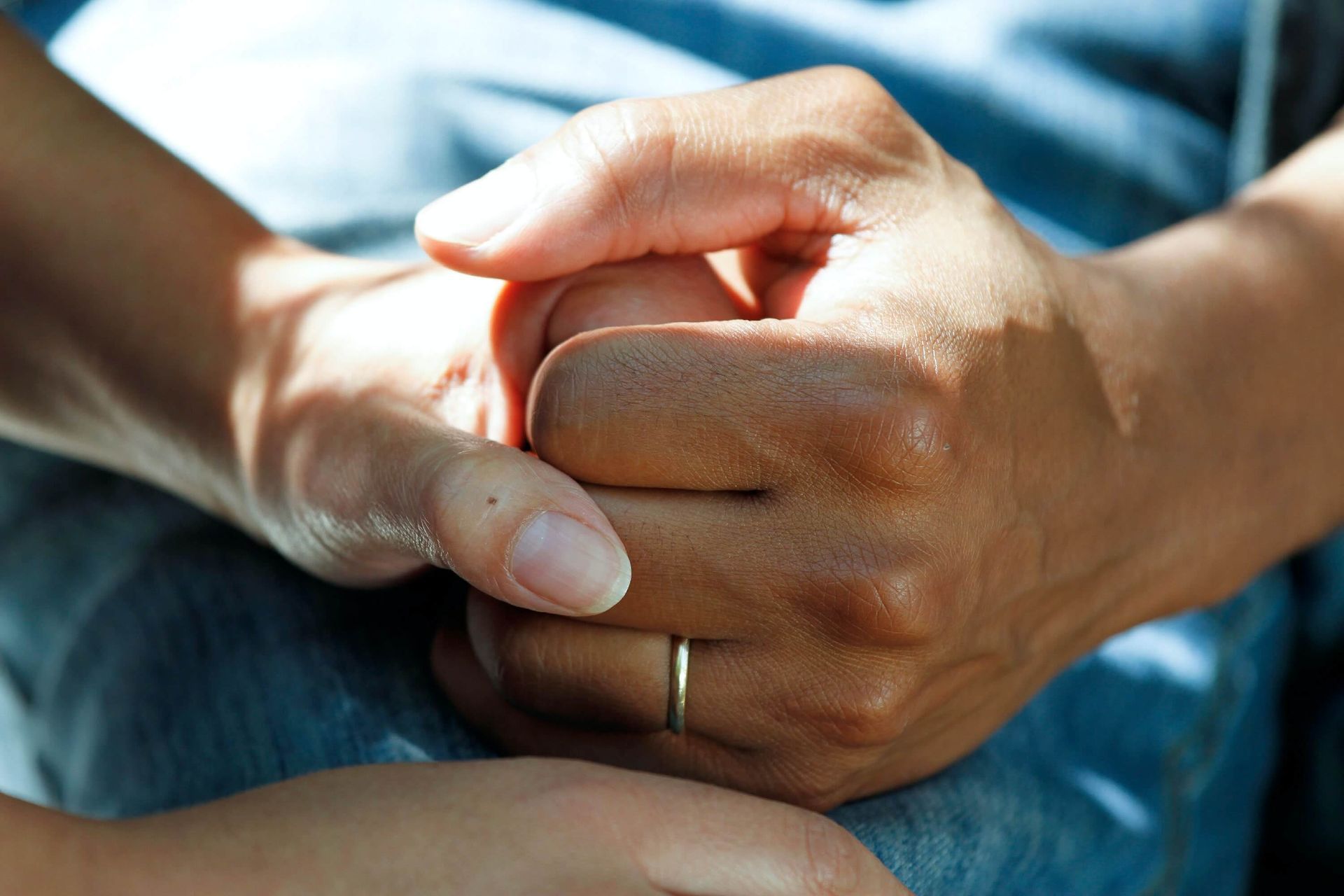Dealing with Grief
Everyone is unique, and we each grieve and mourn a loss in our own special ways. While some might put on a brave face, others are completely overwhelmed.
When someone close to us passes away, it’s completely normal to feel a mix of emotions depending on your relationship to the deceased and the circumstances surrounding their death. In any case, it’s important to understand that experiencing grief is a healthy part of the healing process.
If you have recently lost someone, please accept our sincerest condolences and know that we are here for you.
How does death affect you emotionally?
Death can bring about existential questions and a heightened awareness of mortality, leading to increased anxiety and worry about one's own mortality or the well-being of others. The emotional impact of death can vary greatly depending on the relationship with the deceased, cultural and personal beliefs about death, and previous experiences with loss. Some common emotional responses to death include following five stages:
What Are The 5 Stages of Grief?
The 5 stages of grief can apply to a variety of circumstances including the loss of a close relationship, the death of a valued being (person or animal) or in response to a terminal illness diagnosis. The five stages of grief include: Denial and Isolation, Anger, Bargaining, Depression, and finally Acceptance. They were first proposed by Elisabeth Kubler-Ross in her book Death and Dying.
Each individual is different and may not necessarily experience the 5 stages in the order listed below. To go through the grieving process, you do not need to follow these step by step. Rather, you must use them as a guide to help you move forward. It is important to recognize that you will likely feel these different emotions and try your best to manage them. An important piece to remember regardless of what stage you are in is: As long as there is life, there is hope. As long as there is hope, there is life.
Denial
Anger
Bargaining
Depression
Acceptance
When Grief Doesn't Ease
The Difference Between Normal and Complicated Grief
When to Consider Grief Therapy
- You cannot speak of the deceased without experiencing intense and fresh grief long after the loss.
- A relatively minor event triggers an intense grief reaction.
- Your conversations with others are littered with references to loss. In other words, loss is an ever-present motif in your world view.
- You have issues related to your loved one's possessions. Keeping everything the same as before their death could indicate trouble just as tossing out everything right away can also be a clue to disordered mourning. (You also need to factor in your cultural and religious background)
- You have developed physical symptoms similar to those of the deceased before their death. Sometimes these symptoms recur annually, on the anniversary of the death, or on holidays. An increased susceptibility to illness or the development of a chronic physical complaint can also be an indicator.
- If you have made radical changes to your lifestyle, or excluded friends, family members, or even activities associated with the deceased, it may indicate unresolved grief.
- A long history of depression, often marked by guilt or low self-esteem, can reveal disordered mourning. The opposite is also true: a person experiencing a false sense of happiness or elation could be experiencing unresolved grief.
- A compulsion to imitate the deceased, in personality or behavior, can be a sign of complicated mourning.
- Having self-destructive impulses or exhibiting self-destructive behaviors can be significant. These can range from substance abuse, engaging in self-harm, developing eating disorders and suicidal tendencies.
- A sense of unexplained sadness occurring at a certain time each year (holidays, anniversaries, or birthdays) can also be a clue to unresolved grief.
- Developing a strong fear about dying, especially when it relates to the illness that took the life of your loved one, is an important clue.
- If you have avoided visiting your loved one's grave or if you are still unwilling to discuss the circumstances of their death, this could indicate complications in your bereavement.
A Useful Model for Assessment: Four Tasks of Mourning
There are certain tasks that, when achieved during your bereavement, can successfully allow you to emerge on the other side of loss as a better, stronger, and more resilient individual. James Worden proposed these four tasks:
- To accept the reality of the loss
- To process the pain of grief
- To adjust to a world without the deceased
- To find an enduring connection with the deceased in the midst of embarking on a new life
Instead of focusing on your bodily discomforts, feelings, and common behaviors, this model allows you to better see where you may be stuck or stalled in the adaptive process. Fortunately, Worden also gives us a list of indicators advising that "any one of these clues in and of itself may not be sufficient" for a diagnosis of complicated grief. "However," he continues, "any of these…should be taken seriously, and the diagnosis of complicated grief should be considered when they appear."
Everyone grieves differently, and there is no right or wrong way to grieve. It is a profoundly personal experience, and it is crucial to allow yourself the time and space to process your emotions correctly.
Talk To Us.
While the experience of grief can be very isolating, we would like to help you take steps to counter the feelings of loneliness and disconnection. Please don't hesitate to call us should you need additional support. We will do our best to ease your bereavement and, if requested, provide a referral to a local grief counsellor or therapist.

Sources:
- Walsh, Katherine, Grief and Loss: Theories and Skills for the Helping Professions, 2nd Edition, 2012
- Worden, James, Grief Counseling & Grief Therapy: A Handbook for the Mental Health Practitioner, 4th Edition, 2009
Davis Funeral Home, LLC
1 Lock Street Nashua, NH 03064
Fax: (603) 881-3124





